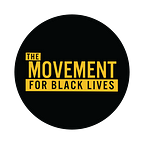Movement for Black Lives Statement on Police Funding Bills
After the House of Representatives passed the Invest to Protect Act, the Movement for Black Lives issued the following statement:
“Yesterday, nearly 30 years after the signing of the 1994 Crime Bill, which drove mass incarceration, disproportionately impacting Black people and people of color, the House of Representatives and the majority of the Congressional Black Caucus renewed their unfettered allegiance to law enforcement by investing $60 million a year for five years in police departments. This is a significant and sustained investment that will only worsen the damage caused by the Crime Bill. The same legislators who supported failed tough-on-crime policies decades ago are once again awarding grants to institutions that harm communities.
For decades, lawmakers have bolstered the federal budget for policing even though most voters want to see investments in more effective public safety measures like prevention and mental health services. While we commend the House’s decision to block the COPS on the Beat Program Reauthorization and Parity Act, which would have doubled federal funding for police hiring and recruitment, it does not negate the harm caused by passing the Invest to Protect Act. In far too many Black, brown and Indigenous communities, hospitals are closing, schools are losing funding and qualified teachers, and community-wide services that strengthen overall outcomes and wellbeing are limited by lack of resources. The safest communities don’t have the most police, they have the most resources. This multi-million dollar investment in police departments would allow local governments to flood our streets with thousands of new officers, once again giving police the power to intervene on issues they’re not qualified or trained to solve.
While we promote the alternative approaches to incarceration and policing, offered by the Mental Health Justice Act and the Break the Cycle of Violence Act, this legislative package remains Congress’ latest political ploy to throw money at ineffective policies in order to maintain power, overlooking decades of deadly police practices and failed reforms. This is just another effort to grow our nation’s outsized police forces, sustain their oppressive tactics and further traumatize another generation of Black and brown families.
There is no evidence that additional police funding produces safety for anyone, especially as the U.S. leads the world in gun violence, criminalization and incarceration. In fact, police departments have received hundreds of millions of dollars in funding this year alone without any accountability measures. No amount of officer training, body cameras, or so-called accountability measures will bring back the lives taken at the hands of police or prevent those that will be taken in the future.
Our families and communities deserve real pathways to healing and stability, not another 1994 Crime Bill. Congress can end this pattern of police violence by pursuing a comprehensive and evidence-based legislative package that is rooted in community-based strategies for public safety. We ask that Congress pass The People’s Response Act, which delivers the transformational change that our communities have been asking for: significant investments in public health, violence prevention programs, and community infrastructure. These policies would create more opportunities to build safer, thriving communities.”
###
The Movement for Black Lives is a national network of more than 150 leaders and organizations creating a broad political home for Black people to learn, organize and take action. M4BL includes activists, organizers, academics, lawyers, educators, health workers, artists and more, all unified in a radical vision for Black liberation and working for equity, justice and healing.
